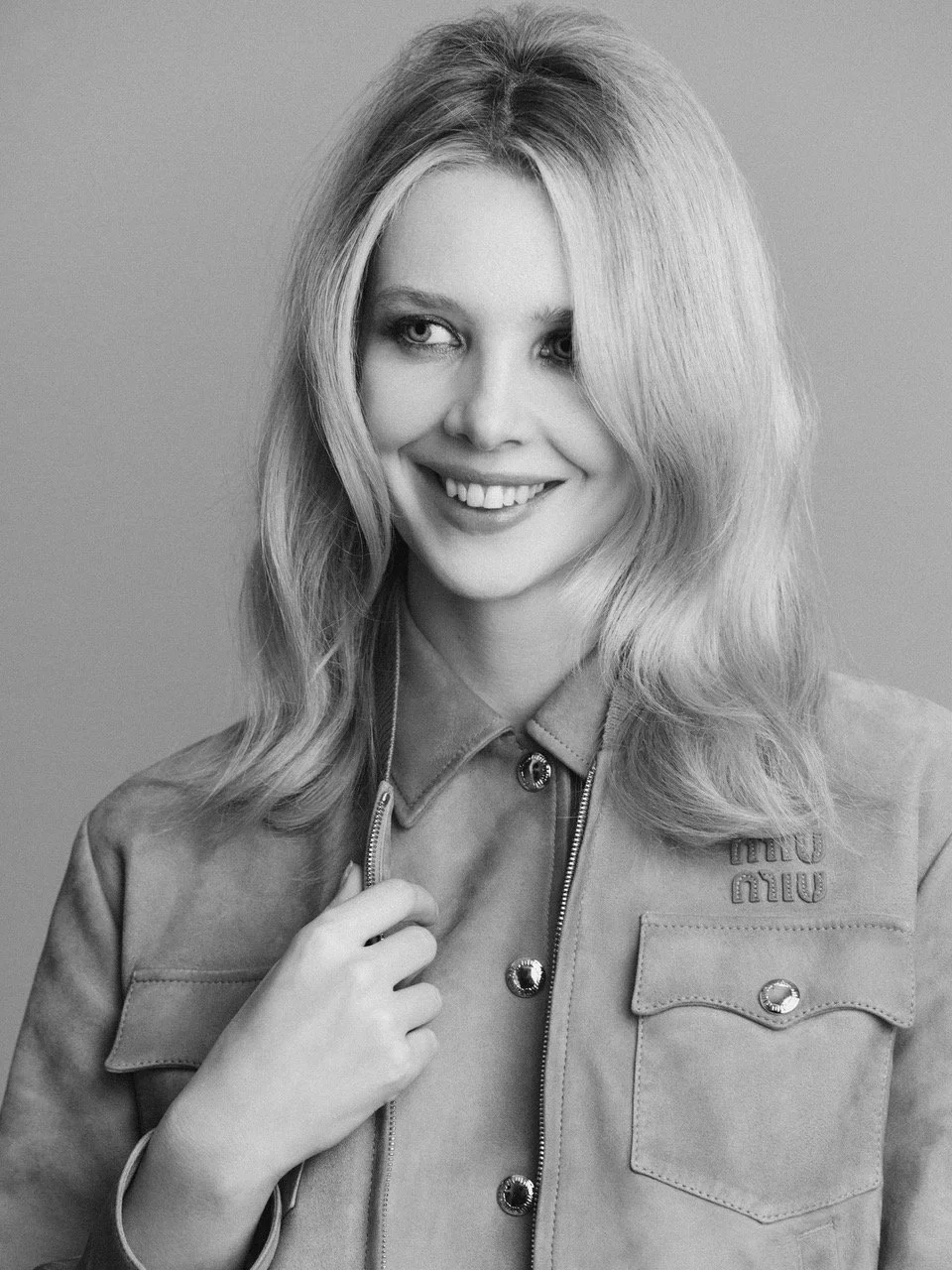Greta Bellamacina
A true multihyphenate, actress, writer, filmmaker and model Greta Bellamacina tells us about the story of her new film Tell That To The Winter Sea, how starting out acting has informed her work behind the camera and the fellow writer-director she admires.
When did you begin acting?
For as long as I can remember, I went to drama class every Saturday. It was always something I looked forward too. When I became a teenager I spent summers performing at Hampstead Theatre - everyone went on holiday and a few of us stayed and wrote and performed plays. Then at 16 I auditioned for The RADA Youth Group and got in. That was life changing, because it was there that I discovered the writing of Federico García Lorca and the lost plays of Shakespeare. I got Iost in their voices, I got lost in their ideas. I suddenly became colder and brighter to the quiet intentions of things.
Tell That To The Winter Sea is a film with an entirely female cast. There are numerous all-male films, yet very few starring just women - what do you think this story gains from being solely female-focused?
I think it shouldn’t feel taboo to have a film that is solely female. It shouldn’t feel like we are missing something. This is a female story set between two women and two times. It's about female inter-relationships, but the story is universal and doesn't exclude a male audience.
You and your co-star Amber Anderson play longtime friends in the film - had you worked together prior to this?
This is our first collaboration together. We had a handful of dance rehearsals before we started filming - this was a really important way to build a physical intensity. It meant our bodies had a shared history. It meant that when we started to act together on the first day, we had a familiar language which was connected and also disconnected at the same time.
You're an actress, writer and director - having started out acting and writing, do you think that helped at all when you came to work behind the camera?
Definitely, it’s helpful having an awareness of both headspaces. But directing is very much the visual translation of the thought and acting is the internal translation of a thought. When you're behind the camera looking through the monitor the world becomes flatter, so it’s about seeing how you can push out of that and cut straight to the action and emotion. Acting is about staying in the action, staying in the moment, and directing is about holding onto it for as long as possible. Though they are both about pace - you want to be able to create enough space between the ideas.
You co-wrote Tell That To The Winter Sea with director Jaclyn Bethany - where did the story come from?
As Jo in Tell That To The Winter Sea, with Amber Anderson
I’d just come home from a film I had made in Italy called Commedia - directed by the Italian filmmaker Riccardo Vannuccini. I was thinking about first love. That intoxicating power it has on you your whole life. How it shapes the person you go on to be.
Aside from your career on screen you work regularly as a model - how do you balance the two?
I’m naturally quite shy - but modelling is a bit like acting. You become a chameleon. You play the mood of the room. The team and you create the images together, so it’s not unlike filmmaking.
Has there been anything you’ve seen lately - it could be a film, a TV show, a play - that you’ve particularly liked?
I recently watched Mia Hansen-Løve's One Fine Morning - I’m a big admirer of her work. I love that she makes films about people, rather than films about plots. Her characters are unexpected and complicated. There is a slight distance to the way she presents the world in the films. The world lives around the characters. Small things happen, which like in life are big things.
Next up for you is All Five Eyes, also directed by Jaclyn and co-starring Honor Swinton Byrne - what is it about?
It’s about two sisters who co-care for their autistic sister, Willa, in a time when the world has no word for autism. Honor and I will play sisters - my character is much more worried about her public persona, she's the teacher at a finishing school, whereas Honor’s character is drawn to the new social freedom of the 1960s. It’s a portrait of what it is to be a carer, presented from two sides. The film is set in a time that has no understanding of neurodiversity, because of that there is a lot of shame and judgement that my character feels. And it’s about the tension between sisters who see the world, and the question of how you should care for someone, very differently.
Words: Scott Bates
Follow Greta on Instagram and X (formerly Twitter)
Tell That To The Winter Sea is in cinemas now and will be available on digital on July 1st

